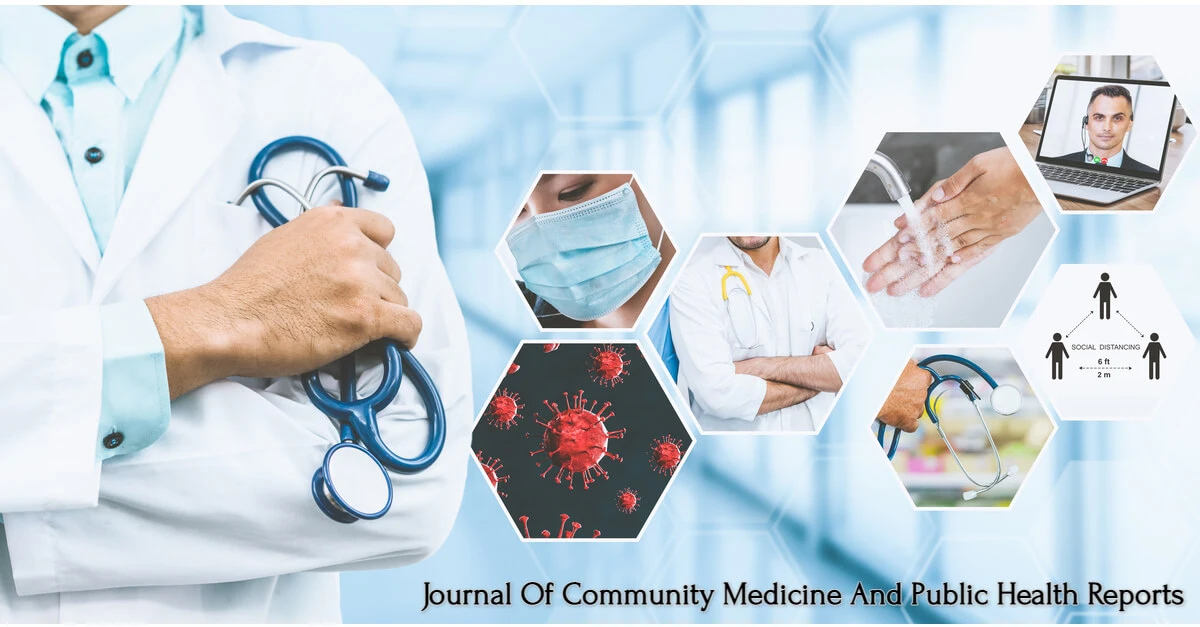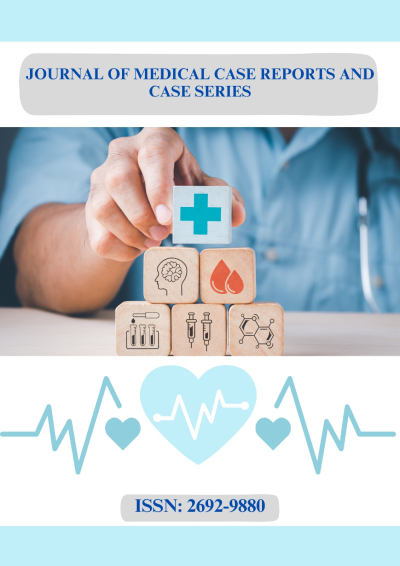Grethel Cisneros Domínguez1*, Jorge Carlos Abad Araujo1, Irene Cruz Martínez1, Carmen María Cisneros Domínguez2
1University of Medical Sciences. Santiago de Cuba, Cuba. https://orcid.org/0000-0002-5331-0382
1University of Medical Sciences. Santiago de Cuba, Cuba. https://orcid.org/0000-0001-8246-659X
1University of Medical Sciences. Santiago de Cuba, Cuba. https://orcid.org/0000-0001-5267-5673
2Saturnino Lora Torres Clinical Surgical Provincial Hospital, University of Medical Sciences. Santiago de Cuba, Cuba. https://orcid.org/0000-0002-0608-3316
*Corresponding Author: Grethel Cisneros Domínguez, University of Medical Sciences. Santiago de Cuba, Cuba. https://orcid.org/0000-0002- 5331-0382
Abstract
The Medical University of Santiago de Cuba was immersed in modifying, through concrete actions, the training process in the final moments of the 2020/2021 academic year for students who were in the last year of their Medicine career, which included both rotating and vertical interns and These, in turn, will provide their assistance contribution to such a human task and on a voluntary basis. They demonstrated their sense of responsibility, of love for their neighbor, and of responding to the call of the authorities of the province exposing dedication and commitment, which revealed several learning experiences in each one of the inmates in such embarrassing times of health difficulties that have been because of this pandemic.
Keywords: pandemic; COVID-19; University of Medical Sciences; Medicine students.
Introduction
The academic years of the Santiago University in the medical sciences careers have passed in times of the COVID-19 Pandemic, reorganizing itself, as established by the indication of resolution 82/20 of the Ministry of Public Health and resolution 49/20 that adapts the processes of continuity and completion of studies in the academic years 2019-2020 and 2020-2021 [1,2], whose purpose has been to guarantee the continuation of studies planned for that stage, implicitly having the acquisition of knowledge supported by information technologies information and communication (ICT), assuming digital training through the virtual health classroom as an urgent need in the training process, together with the development of comprehensive community work through anti-epidemic fight activities, which has allowed Education at work, continue to be the indispensable form of organization(3) and the model that identifies academic training in health sciences.
Given the rapid spread of the SARS-CoV-2 virus, which gave rise to a new epidemiological context unleashed by a COVID-19 pandemic and where the numbers of infections began to be high in our nation [4,5], the province of Santiago de Cuba and its municipalities were not exempt, hence the government and health authorities made an urgent call to incorporate human resources into this noble task.
The Medical University of Santiago de Cuba was immersed in modifying, through concrete actions, the training process in the final moments of the 2020/2021 academic year for students who were in the last year of their Medicine career, which included both rotating and vertical interns and These, in turn, will provide their assistance contribution to such a human task and on a voluntary basis.
All interns, after having carried out their rotations established by different specialties, both clinical and surgical, as conceived by the study plan they went through and without interrupting said rotations, maintaining the face-to-face bond in each and every one of them, It became necessary to incorporate the inmates to different isolation centers, which allowed them to develop a care role, increasing these, in turn, professional clinical skills associated with the care of patients with COVID-19 and improving their modes of professional action in such a condition.
Urgently and jointly with the Schools of Medicine 1 and 2, the planning and organization of the students were carried out, who, divided into three cycles of work, guaranteed and supported medical assistance in different isolation centers located in the main municipality. , and in the rest of the municipalities where the students resided. Those students who could not join due to personal or health problems, who were assigned other tasks in coordinating centers for the care of suspected and confirmed patients, those who performed their tasks in 24-hour shifts, were excluded.
The Department of Professional Training of the UCM-SC, together with all its methodologists, organized in a coherent and imminent way the distribution of students of the Medicine career, group meetings were held advising all the interns who mostly gave the willingness to integrate this advanced.
Methodological strategies were used with a view to guaranteeing the culmination of the educational teaching process in this last year of the career, without affecting the quality of the student body, it was taken into account that when making the previous visit to all the isolation centers where the interns were incorporated, their performance was monitored by specialists located in each center, which in turn served as support for the performance of their profession with the ability to offer and receive the best in both tasks and knowledge, without declining rigor, demand and responsibility. That guarantees the quality of the future graduate.
New learning experiences in vertical and rotating interns
It is opportune and meritorious to publish the experience and work developed by the sixth-year students of the Medicine career of the University of Medical Sciences of Santiago de Cuba, who voluntarily and without receiving any monetary remuneration, only their stipend as an intern, were incorporated in periods of 15 days to patient care, distributed in 25 isolation centers that were created for the care of suspected and confirmed patients with COVID-19.
There were many personal skills and professional skills developed during the hospitalization period of the medical students, not to mention the psychological and emotional load that could be generated in many cases when caring for patients with COVID-19, due to the high degree of contagion that creates said virus and the constant increase in cases. In addition to creating certain uncertainties because it is a completely new situation for everyone.
However, they were able to demonstrate among all their sense of responsibility, of love for their neighbor, and to respond to the call of the authorities of the province showing dedication and commitment, which revealed several learning experiences in each of the inmates in such times. Embarrassing health difficulties have been caused by this Pandemic.
The inmates were assigned to work in different isolation centers, they remained accompanied by general practitioners or specialists, these being guides and supervisors of the work that the former carried out and that, to mention some of the actions they carried out, included visit passes, the evolution of clinical histories, clinical procedures, case discussions, prevention work, and health actions according to treatment protocols.
Upon being welcomed in each isolation center, the inmates received precise instructions according to trained personnel who had previous experience in caring for patients with COVID-19, regarding the use of means of protection and care not to infect, all of them underwent previously PCR (polymerase chain reaction) tests, as well as a PCR test after concluding the hospitalization. Thanks to the discipline maintained by each of the inmates and compliance with the provisions of the treatment protocol for the care of patients with COVID-19, it demonstrated a low level of contagion in the students.
The University of Santiago is honored to contribute to the training of doctors of such high lineage, those who collaborated voluntarily and with a high sense of responsibility at a time when the province of Santiago de Cuba was experiencing an acute health crisis, which had repercussions at that time throughout the national territory and extended to many regions of the world.
Dissimilar have been the experiences carried out in the different universities of Medical Sciences in the country for the care of patients with COVID-19 [6], which once again demonstrates the human sense of Cuban medical training and its persistent vocation to service to the health of the people.
The international literature refers to other countries located on the European continent and to North America, how the rotations were developed clinics in the last years of the Medicine career, which had a slow character. In the case of last year interns, it was decided discharge early to meet the growing demand of health personnel and for students of other academic years, education was reorganized through online formats and some of the students volunteered at call centers for guidance to the community on COVID-19. [7-9]
This beautiful social mission carried out by the medical students of the UCM-SC shows the educational character as a training institution of health professionals, which allows providing health support to everyone in need through its main actors who are nothing more than the students themselves, being indispensable leaders of this university center that has been for years an educational reference center for both Cuba and for other nations.
Conclusions
This period, due to COVID-19, has rightly and profoundly demonstrated Cuban medical training, and in particular that of the province of Santiago de Cuba, which in the face of new challenges has been able to reflect the development and exercise of pre-professional internships for internal students in training.
In this sense and to a certain extent, it has allowed remaining with the curricular learning offered in the study plan, but at the same time, it has opened a range of new knowledge in the care of patients with COVID-19, conferring deepening and exercising in aspects sensitive and human, such as having the life of a patient so closely, the uncertainty regarding the evolution of the state of health as well as the indecision regarding their lives. It is evident that the period of the Pandemic has been strong and contending, but the conviction remains that what the interns of the Medicine career at the University of Santiago de Cuba experienced helped give them tools, knowledge, and experiences that nurture and enhance their professional life.
Conflicts of interest: The authors declare that there are no conflicts of interest
Authors’ contribution
Dr. Grethel Cisneros Domínguez: Conceptualization of ideas, formulation or evolution of goals and general objectives of the research. Approval of the final report (40 %).
Dr. Jorge Carlos Abad Araujo: Development and methodological design (20 %).
Lic. Irene Cruz Martinez: Drafting of the manuscript, creation, preparation and review of comments (20 %).
Dra. Carmen María Cisneros Dominguez: Drafting of the manuscript, creation, preparation and review of comments (20 %).
References
- Ministry of Public Health. Medical Teaching Directorate. Resolution 82/20. March 23, 2020. Havana: MINSAP; 2020.
- Cuba. Ministry of Higher Education. Official Gazette No. 24 Extraordinary. Resolution 49/2020. Adaptations of the processes of continuity and completion of studies in the academic years 2019-2020 and 2020-2021. Havana, May 9, 2020 [cited 08/24/2020].
- Miller DG, Pierson L, Doernberg S (2020) The role of the medical student in the face of the COVID-19 pandemic. Ann Intern Med. 173: 145-146.
- Cuba. Ministry of Public Health. Directorate of Medical Records and Health Statistics. Health Statistics Yearbook 2019. Havana: MINSAP; 2020.
- Center for Disease Control and Prevention. Coronavirus 2019 (COVID-19).
- Morales Suárez I (2018) The transformations in the Cuban National Health System, its incidence in the universities of Medical Sciences. Educac Med Super. 32(1).
- Chandratre S (2020) Medical Students and COVID-19: Challenges and Supportive Strategies. J Med Educ Curric Dev. 7: 2382120520935059.
- Kinder F, Harvey A (2020) COVID-19: the medical students responding to the pandemic. BMJ. 369: m2160.
- Miller D, Pierson L, Doernberg S (2020) The Role of Medical Students During the COVID-19 Pandemic. Annals Of Internal Medicine. 173(2): 145-146.



